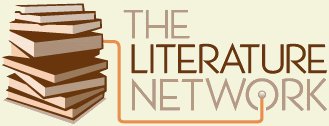Sublime
An inspiration engine for ideas
With some beautiful insights, Holt said what many already knew instinctively about school, merely by having passed through it themselves. His method was to reflect upon his own experience of teaching in his Boston classroom, by giving vignettes—diary entries of his work with children. He mused on the things children said and did in response to his
... See moreGary Thomas • Education: A Very Short Introduction (Very Short Introductions)
Erik Hoel • Why We Stopped Making Einsteins
Little Journeys Vol. 13: Great Lovers by Elbert Hubbard: John Stuart Mill and Harriet Taylor
online-literature.com
doctor. If schools ceased to be compulsory, teachers who find their satisfaction in the exercise of pedagogical authority in the classroom would be left only with pupils who were attracted by their style.
Ivan Illich • Deschooling Society (Open Forum S)
Barbara Sarnecka, an associate professor of cognitive sciences at the University of California, Irvine, told Lenore that today “adults are saying: ‘Here’s the environment. I’ve already mapped it. Stop exploring.’ But that’s the opposite of what childhood is.”
Johann Hari • Stolen Focus: Why You Can't Pay Attention--and How to Think Deeply Again
Dans The Year of Learning Dangerously, Quinn Cummings raconte comment elle a instruit sa fille Alice à la maison : « Avec son père, nous connaissions Alice mieux que personne et nous ne pouvions plus ignorer qu’elle ne faisait pas grand-chose à l’école. Comme l’on dit lorsqu’on est à court d’euphémismes pour parler de “relâchement”, notre fille
... See moreKen Robinson • Changez l'école ! : La révolution qui va transformer l'éducation (French Edition)
Émile (or On Education), published in 1762, Jean-Jacques Rousseau used the fictional example of a boy called Émile to argue that a child can learn everything he needs to without interference from adults.
Ian Leslie • Curious
In recent years, psychologists studying differences in educational achievement have been paying more attention to the question of ‘non-cognitive traits’, by which they mean something like personality, or character. It’s now recognised that the attitude students take towards the learning process, and the habits they practise, have a bigger impact on
... See moreIan Leslie • Curious
JOHN HOLT author of How Children Fail